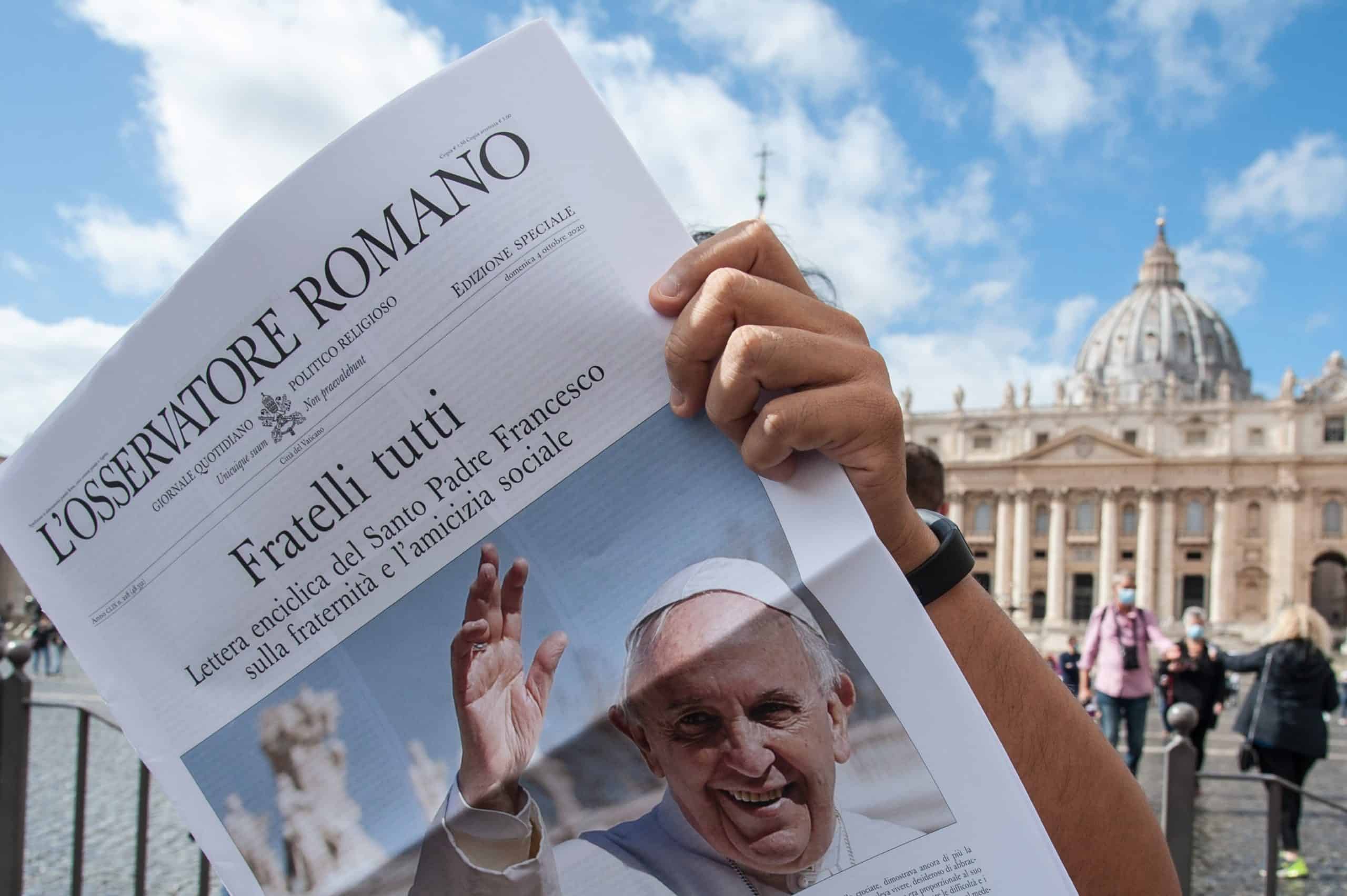The news these days does not paint a rosy picture for peace and goodwill around the world. The United Kingdom continues its agonizingly slow departure from the European Union. Tensions are flaring between Azerbaijan and Armenia. Lebanon’s decline into failed statehood continues; and citizens are protesting corrupt leaders in Spain, Thailand, across Africa, and elsewhere. In the United States, of course, a tumultuous presidential election is taking place not only in the midst of a global pandemic, but against a backdrop of rising racial tensions and partisan divisions that remain at a constant fever pitch.
Despite these challenges, or perhaps because of them, Pope Francis chose to release an encyclical earlier this month on the topic of love.
Fratelli Tutti (overview here) seeks to bring people together in an era when we are drifting further and further apart. Its message, that “we need to think of each other more and more as a single family dwelling in a common home” (87), spans many topics, among them economics, immigration, social media, war, capital punishment, and the current pandemic. The pope’s message on politics, however, speaks to this current climate in a particularly striking way.
Pope Francis admits that “for many people today, politics is a distasteful word” (176). Corruption, poor governance, and seemingly hopeless division have led to a high degree of cynicism toward political leaders in many countries. On the contrary, he considers politics a noble profession, but only if leaders practice it “out of a tender care for others” (194). Politicians have a unique opportunity: they can help individuals, yes, but they also have the power to create the very conditions by which people can flourish, which has a much larger impact. Politics has fallen into disrepute because individualism and an unhealthy populism have corrupted it. What we need, says Francis, is “a better kind of politics, one truly at the service of the common good” (154).
What would this “better kind of politics” look like? We might look first to the Parable of the Good Samaritan, the theological foundation of the entire encyclical. The parable reminds us how easy it is to avoid the suffering of others by looking the other way. National boundaries do not matter to the Samaritan, who comes from a nation deeply at odds with that of the Jewish victim. The discomfort of the badly wounded man does not disgust him or cause him to retreat into a “comfortable isolation” as it does the priest and the Levite (68). Neither does he pass judgment on the social position of the victim; he sees only a human being who needs help.
Francis challenges all people, and their leaders, to imitate the Samaritan. To do otherwise is to act as a secret ally of the robbers, enabling them to commit their crimes with impunity and determine the consequences for themselves.
How can we expect our politicians to embody the virtues of the Good Samaritan? Three practices stand out in Francis’ lengthy encyclical: dialogue, encounter, and solidarity.
Dialogue means going deeper than “feverish exchange” (200) on social media and a “noisy potpourri of facts and opinions” (201) we often find in the traditional media. Political leaders practicing dialogue would recognize that others have something valuable to contribute, and that conflicting points of view are worthy of respect.
True encounter does not push others away because they make us uncomfortable; it is rooted in a “basic sense of belonging” to each other which is present within each human being (230). It does not mean avoiding conflicts or “making society blandly uniform” (228). Political leaders practicing encounter would foster reconciliation that happens through “open, honest, and patient negotiation” (244).
Leaders who exhibit solidarity would practice “thinking and acting in terms of community,” and would recognize that being born in one place or another does not make a person more or less worthy of the rights and privileges of being human (116). On the contrary, “the dignity of others is to be respected in all circumstances, not because that dignity is something we have invented or imagined, but because human beings possess an intrinsic worth” that comes from God (213).
This call to bring about a politics of dialogue, encounter, and solidarity can sound utopian or naive. Francis admits as much more than once. Yet, he reminds us that change happens on the level of ordinary people, and that “each individual can act as an effective leaven by the way he or she lives each day” (231). In a very practical way, we can strive to change our lives day by day according to the model of the Good Samaritan, and we can vote for the political leaders who best exemplify this “better kind of politics.” No candidate, or society, will ever be perfect, but we must not lose hope: Francis reminds us that “God continues to sow abundant seeds of goodness in our human family” (54).


